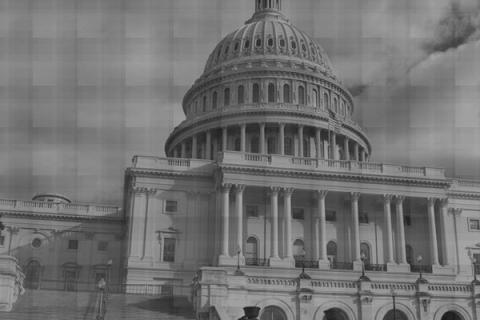Today in Iowa, twelve-term Congressman and 2008 presidential candidate Ron Paul (R-TX) will be announcing the creation of a presidential exploratory committee for the Republican Party's nomination in 2012. Last year, Rasmussen reported that in a hypothetical 2012 match up of Ron Paul against President Barack Obama, the two were in a statistical tie, making the kindly, Republican Congressman with a libertarian streak a truly viable candidate.
The timing is no accident. Paul and any other Republican contenders have only a few days left to file for exploratory committees in time to qualify for the first national debate of the 2012 Republican Primary, which will be hosted by Fox News on May 5th in Greenville, South Carolina. An exploratory committee is not the same as a full-fledged campaign. According to Paul spokesman Jesse Benton, after failing to secure his party's nomination in 2008, Ron Paul will "base a decision to run this time in part on the response he receives at the May 5 debate."
Just how did Ron Paul do in 2008? National Journal reports:
"Paul took 10 percent of the vote in the Iowa caucuses and 8 percent in New Hampshire’s primary. He finished second, with 14 percent of the vote, in the Nevada caucuses, and eventually finished fourth in the Republican nominating process with 5.6 percent of the total vote."
At the time, Ron Paul was a Congressman serving in his tenth term, and unexpectedly gained an energetic national following for questioning the effectiveness of the Bush-era U.S. foreign policy and citing CIA reports that concluded acts of terrorism against the United States were a predictable consequence of constant U.S. military intervention into conflicts overseas. The antiwar Republican would end up setting online fundraising records in the final quarter of 2007 as supporters lavished millions on his campaign in two, single-day "money bombs."
Though his first presidential bid was operationally unsuccessful-- failing to secure the Republican nomination-- it was arguably a major strategic victory for Ron Paul, yielding him more co-sponsorships than ever for the "Audit the Fed" legislation that he introduces every session, launching his son, Rand Paul into a successful U.S. Senate bid, pushing his campaign book "The Revolution" to No. 1 on the New York Times best-seller list, garnering a steady stream of interviews with a media impressed by the prescience of his dire economic predictions in 2007, catalyzing the Tea Party movement, and spawning a political machine with arguably more energy than any other faction within the GOP, namely organizations like Campaign for Liberty and Young Americans for Liberty.
His newfound name recognition, formidable fundraising prowess, and robust political machine with a little more experience under its belt this time around could give Ron Paul the edge he needs to make a much more impressive showing in 2012. Additionally, Republicans not quite ready for his foreign policy views so soon after supporting George W. Bush might be warming up to a more critical, independent-minded look at the foreign policy which dominates both major parties' agenda in Washington. Just as the antiwar left has seemed quieter these last two years, with a Democrat sitting in the Oval Office, Republicans seem more willing to take a critical look at how the White House's military exploits affect our nation's safety-- and fiscal solvency.
When will we know if Ron Paul intends to launch a full campaign to run for president? A source close to the Paul campaign says, "You can expect that decision to come in mid-May."

